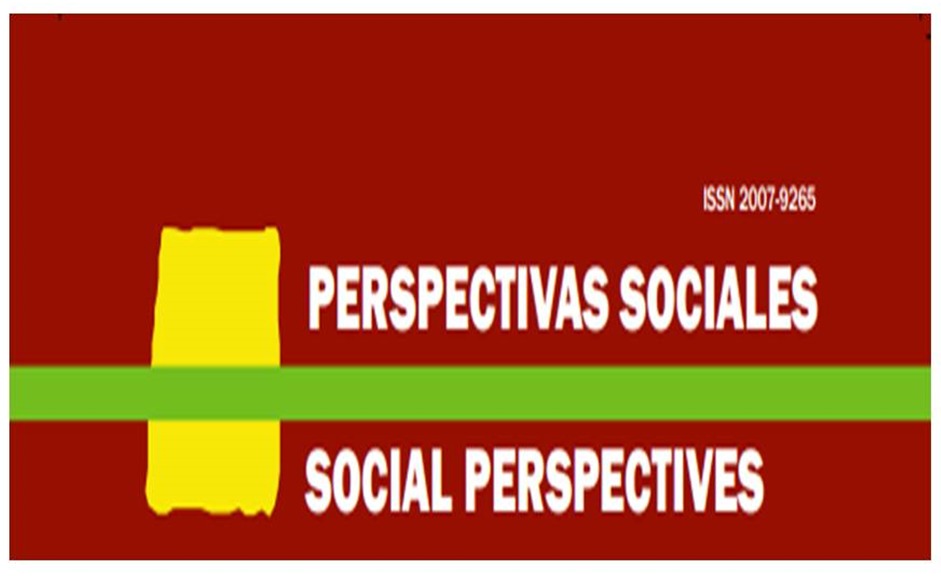Women, gender and Social Work: possibilities and impossibilities in the management for development in Mexico. XXI century
Keywords:
Gender, Women, Social Work, Feminization, ProfessionAbstract
The study is presented, outlines a social investigation that has just begun on Mexican women, Social Work and the theory of gender as an interpretive framework. The projected study aims to account at the time, on the double position of women social workers in Mexico, as recipients of possible social programs that utopianly alleviate their vulnerability and as well, as professionals in a helping profession that involves their collaboration in personal-social development of users of their services. The approach presents several premises. First, the social work has been generated and developed mainly by women. Second, the feminization of the profession linked to the socialization of gender in actions such as aid and endless working hours, which while invisible, are not valued, are not paid for and culturally continue to be attributed to women within patriarchal structures. Third, the individual - professional positions of women social workers, and their readings regarding their professional practice. The epistemological distances between the theory and practice of Social Work are discussed too. Likewise, the antecedents that guided the design of the research are presented, followed by the basic methodological aspects by which the study will be conducted. Emphasis is placed on the beginnings of field work carried out at the beginning of 2020, and which have been paused due to the outbreak of the COVID 19 pandemic. The first interpretations of the data from the interviews are deepened carried out and the questionnaires applied as a pilot test. The axis that was investigated was called Self-Image. Woman-Social Worker, his objective was to explore ideological, professional and gender positions, from where Social Work services are intervened or managed. Some of the data generated and its incipient analyzes are presented. It concludes with reflections on the reproduction of gender inequalities also in the profession of Social Work, eminently made up of women.
Downloads
References
Aranguren V. E. (2014). Empoderamiento profesional e intelectual en Trabajo So cial. Retos de futuro. Revista Internacional de Trabajo Social y Bienestar, 3. Con sultado el 21/02/20: http://cdd.emakumeak.org/ficheros/0000/0768/19.Empodera miento_profesional_e_intelectual_en_trabajo_social.pdf
Báñez, T. (2012). El trabajo social como profesión feminizada, Revista de Treball Social de Catalunya, 195, 89-97.
Berasaluze Correa, A. (2009). El devenir del Trabajo Social en clave de género. Revista Zerbitzuan, 46, 133-140. Consultado el 26/04/2021: http://www.margen. org/docs/curso61-1/unid05/apunte03_05.pdf
Bourdieu, P. (2000). La dominación masculina. Barcelona: Anagrama. Bourdieu, P. (1998). La Distinción. España: Taurus.
Bourdieu, P. (1997). Razones prácticas. Barcelona: Anagrama.
Collin, F. (1993). Diferencia y diferendo: La cuestión de las mujeres en filosofía. En: F. Thébaud, Historia de las mujeres. Historia de las mujeres de Occidente. El Siglo XX. Madrid: Taurus, pp. 291-322.
Consejo Nacional de Evaluación de la Política Social (CONEVAL) (2018). Datos de población en México. Consultado en: https://www.coneval.org.mx/Medicion/ MP/Paginas/Pobreza-2018.aspx
Consejo Nacional de Evaluación de la Política Social (CONEVAL) (2021). Informe de Evaluación de la Política de Desarrollo Social 2020. Consultado el 04/03/21: https://www.coneval.org.mx/SalaPrensa/Comunicadosprensa/Documents/2021/
COMUNICADO_01_IEPDS_2020.pdf Denzin, N. (2000). The seventh moment: Out of the past. En N. K. Denzin y Y. S. Lincoln (Eds.), Handbook of Qualitative Research. London: Sage Publications, pp. 1047-1065.
Etzioni, A. (1969). The Semi-Professions and their Organization: Teachers, Nurses, Social Workers. New York: Free Press.
Gálvez, L. M. y Chávez, G. M.E. (2016). Trabajo social y desarrollo: objetivos comunes, caminos divergentes. Dos paradigmas analizados desde la perspectiva de género. Compendio Investigativo de Academia Journals, Celaya. Elibro Online Tomo 12, pp. 1930–1935.
Gómez Sánchez, L. (2004). Procesos de subjetivación y movimiento feminista. Una aproximación política al análisis psicosocial de la identidad contemporánea. Tesis Doctoral. España: Universitat de Valencia.
Harding, S. G. (1998). Is science multicultural? Postcolonialisms, feminisms, and epistemologies. Bloomington, Indiana: Indiana Univ. Press.
Hernández E. y Aránzazu, L. (2017). El Proceso de (Des) Profesionalización del Trabajo Social en España (1980-2015): Déficits, Riesgos y Potencialidades. Tesis Doctoral. Doctorado en Derecho y Ciencias Sociales. UNED. Consultado el 13/010/20: http://e-spacio.uned.es/fez/eserv/tesisuned:ED_Pg_DeryCSoc-Lahernandez/HERNANDEZ_ECHEGARAY_LuisaAranzazu_Tesis.pdf
Lagarde, M. (1993). Los cautiverios de las mujeres. Madresposas, monjas, putas, presas y locas. México: UNAM.
Lincoln, Y. (2001). Emerging criteria for quality in qualitative research. En M.K. Denzin y Y.S Lincoln (Eds.). The American tradition in qualitative research. London: Sage Publications, VI, pp. 108-120.
Lorente Molina, B. (2004). Género, ciencia y trabajo. Las profesiones feminizadas y las prácticas de cuidado y ayuda social. Revista Scripta Ethnologica, 26, pp39- 53.
Miranda Aranda, M. (2004). De la caridad a la ciencia. Pragmatismo, Interaccionis mo Simbólico y Trabajo Social. Zaragoza: Mira Editores.
Moral Santaella, C. (2006). Criterios de validez en la investigación cualitativa ac tual. Revista de Investigación Educativa, 24, 147-164. Consultado el 29/07/2021: https://www.redalyc.org/articulo.oa?id=283321886008
Oriol Prats, J. (2006). Teoría y práctica del desarrollo. Cambios en las variables de la ecuación del desarrollo en los últimos 50 años. Revista del CLAD, 36, 1-17 pp.
Patton M. (2002). Qualitative research and evaluation methods. Thousand Oaks: Sage Publications.
Rosaldo, Michelle. Z. (1980). The Use and Abuse of Anthropology: Reflections on Feminism and Cross-Cultural Understanding. Revista Signs, 5, 389-417. Consultado el 09/12/19: http://www.jstor.org/stable/3173582
Scott, W.J. (2012). Gender and the Politics of History. New York: Columbia Uni versity Press.
Scott, W. J. (1996). El género: Una categoría útil para el análisis histórico. En: Marta Lamas, (Comp). El género: la construcción cultural de la diferencia sexual. México – PUEG, pp. 265-302.
Sen, A. (1993). Capability and Well Being. En: Amartya Sen y Martha Nussbaum The Quality of Life (eds.), New York: Oxford University Press, pp. 30-53.
United Nations Research Institute for Social Development – UNRISD - (2001). Social Policy in a Development Context. Recuperado el 19/08/20: https://www. unrisd.org/UNrisd/website/document.nsf/(httpPublications)/C83739F8E9A9AA 0980256B5E003C5225?OpenDocument
Zamanillo, T. y Gaitán, L. (1991). Para comprender el Trabajo Social. Navarra: Verbo Divino.

Downloads
Published
How to Cite
Issue
Section
License
Copyright (c) 2022 Martha Gálvez Landeros Erika M. Ramírez Diez María Elena Chávez García

This work is licensed under a Creative Commons Attribution 4.0 International License.




